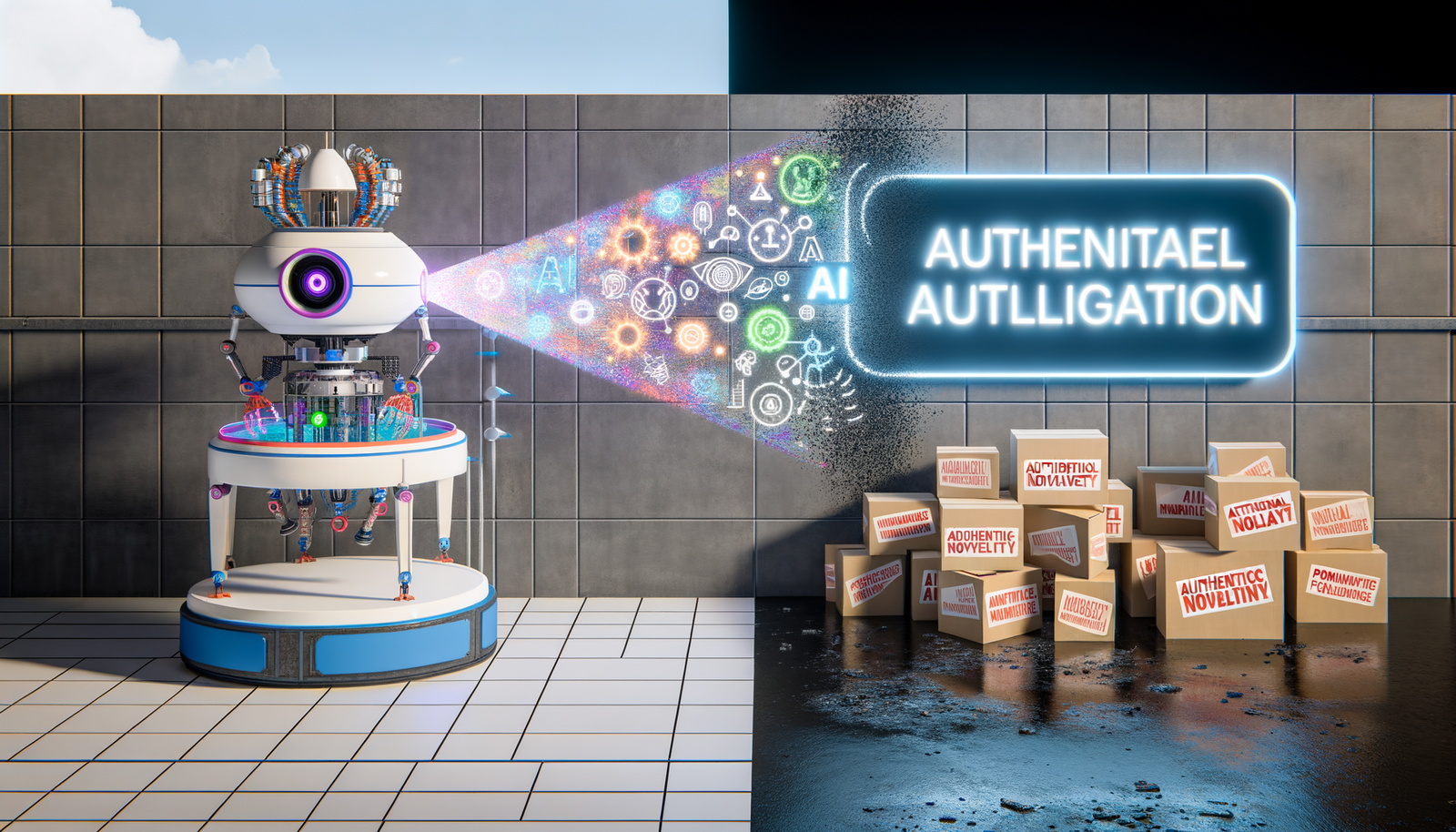Generative AI has revolutionized how businesses operate and innovate, offering unprecedented opportunities to streamline processes and enhance customer experiences. However, alongside this progress lies a growing concern: “Unmasking AI Washing: Its Perilous Effects on Industry!” Many companies are misusing the term “AI” to promote their products, leading to confusion and mistrust among consumers. As we explore the transformative potential of generative AI, it’s crucial to differentiate between authentic advancements and hollow claims that threaten the integrity of the industry and hinder genuine technological progress.
Understanding AI Washing
At its core, AI washing refers to the practice of manipulating or misleadingly marketing a product or service by using the term “AI.” This tactic can create an inflated perception of a company’s technological prowess while delivering only superficial enhancements. In this age of rapid technological advancement, it is all too easy for businesses to slap an “AI” label on their offerings without incorporating genuine artificial intelligence. This phenomenon can lead to serious repercussions, muddying the waters for consumers and demoting the true innovators in the field.
The Rise of AI Washing
As organizations vie for consumer attention, the allure of artificial intelligence is hard to resist. Many firms, eager to emerge as leaders in innovation, start using buzzwords synonymous with AI, whether or not their products hold any real significant AI capabilities. Statistics reveal that a staggering percentage of organizations (over 80%) are claiming to use AI in their business processes, even when the technology may only be employed at a rudimentary level. This highlights the propensity for AI washing, where companies stretch the truth to gain credibility and attract customers.
The Consequences of AI Washing
While it may seem harmless for companies to boost their marketing strategies, the repercussions of AI washing can be dire for the industry as a whole. Let’s unpack some of its perilous impacts:
- Consumer Mistrust: As more companies engage in AI washing, consumer trust erodes. When customers realize they’ve been misled, they become skeptical of all AI-related claims, creating an environment of doubt around genuine products.
- Devaluation of True AI Work: Legitimate advancements in artificial intelligence become diluted among a sea of false claims. Experts and innovators who are dedicating years of research may be overlooked or overshadowed by companies falsely presenting themselves as leaders.
- Regulatory Challenges: The increased scrutiny from regulatory bodies can lead to tighter restrictions on how companies present their capabilities. This can stifle genuine innovation as businesses adopt a more conservative approach out of fear of regulatory backlash.
- Increased Costs: When companies pay for the disconnect between actual artificial intelligence capabilities and marketing projections, it often leads to increased costs. They invest in technology that offers little more than flair rather than functional efficacy, which can burden their finances.
- Stagnation of Progress: An environment rife with AI washing might discourage companies from pursuing legitimate AI solutions. When organizations perceive the effort as fruitless amidst rampant misrepresentation, they may abandon critical projects that drive true innovation.
The Ethical Implications
Beyond the commercial sphere, AI washing carries various ethical implications. The ethical considerations surrounding the development and implementation of AI are already complex. When businesses engage in AI washing, they dilute arguments for ethics in AI and erode discussions surrounding transparency, accountability, and fairness. Essentially, as companies lure consumers with false pretenses, they also neglect vital ethical discussions that should guide true AI advancement.
Distinguishing Genuine AI from AI Washing
So how do we sift through the noise? The key lies in discerning authentic AI from mere marketing fluff. Here are a few critical indicators to help consumers become informed:
- Scrutinize Claims: Understand the technology behind the company’s claims. Research the depth of the technology involved, looking for transparency regarding algorithms, data usage, and AI training methodologies.
- Seek Peers and Reviews: Engaging with industry experts and reading popular reviews can illuminate the effectiveness and validity of claimed AI solutions. Your peers expand your understanding.
- Transparency is Key: Genuine AI solutions often come with transparency regarding decision-making processes. Look for businesses that provide clear insights into their AI models and the data informing their decisions.
- Check Certifications: Legitimate AI applications often retain specific certifications or formal assessments. Companies with noteworthy credentials will be eager to share their accomplishments and validation with consumers.
The Role of Companies in Combatting AI Washing
Desiring a trustworthy AI ecosystem is more than just a consumer demand; businesses should take responsibility to ensure authenticity in their offerings. Here are ways organizations can combat AI washing:
- Educate Stakeholders: Transparency starts within. Equip employees, partners, and stakeholders with proper training to understand AI’s scope and limitations.
- Uphold Ethics: Adopt and maintain ethical business practices, including honest marketing strategies. Businesses should pledge allegiance to authentic AI applications, which can help restore the reputation of the industry.
- Encourage Dialogue: Engage in conversations surrounding AI development openly. Collaborating with regulatory entities and industry peers can foster trust and discussion about ethical AI.
- Prioritize Innovation: Invest in true research and development, focusing on advancing AI capabilities rather than tossing labels to enhance marketing strategies.
Conclusion: A Call for Authenticity
The dangers posed by AI washing are tangible, affecting everything from market perception to the ethical foundation of advancements in technology. It’s essential for industry leaders, consumers, and innovators to collectively champion authenticity and integrity in the AI landscape.
In doing so, we create an environment where true advancements can thrive, ensuring that innovative solutions reach those who need them while fostering trust and responsibility in the process. Embracing genuine AI will not only promote accountability and excellence but can propel independent industries to unprecedented heights. It’s our responsibility to ensure AI serves as a force for good, empowering innovation rather than courting the obfuscation of hype.
If you’re looking for more insights into the landscape of AI practices and innovations in the industry, check out Neyrotex.com.







